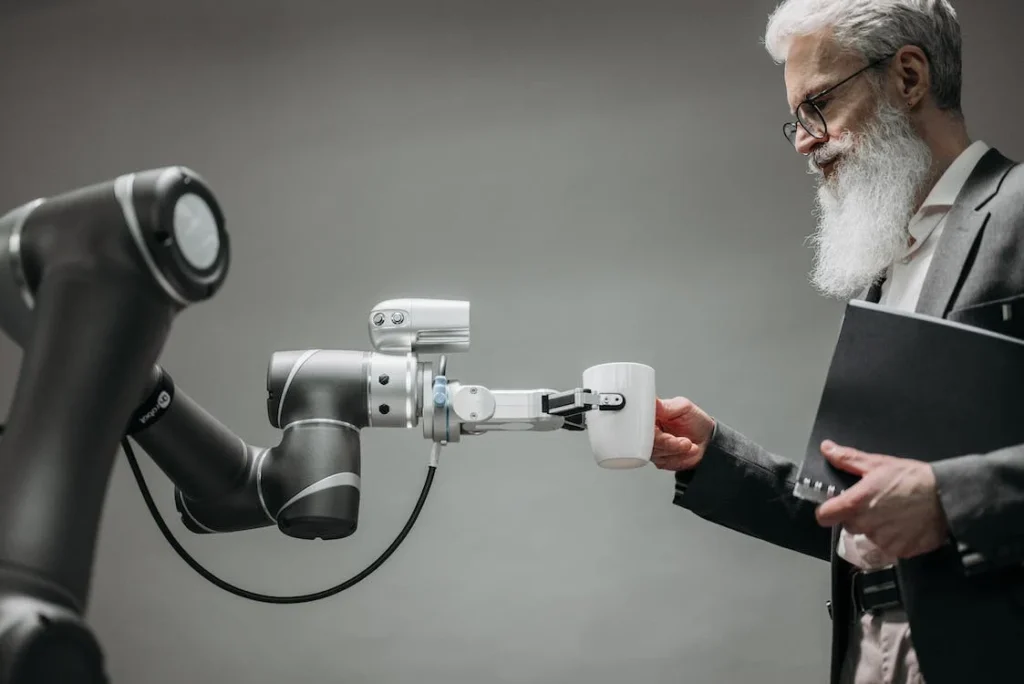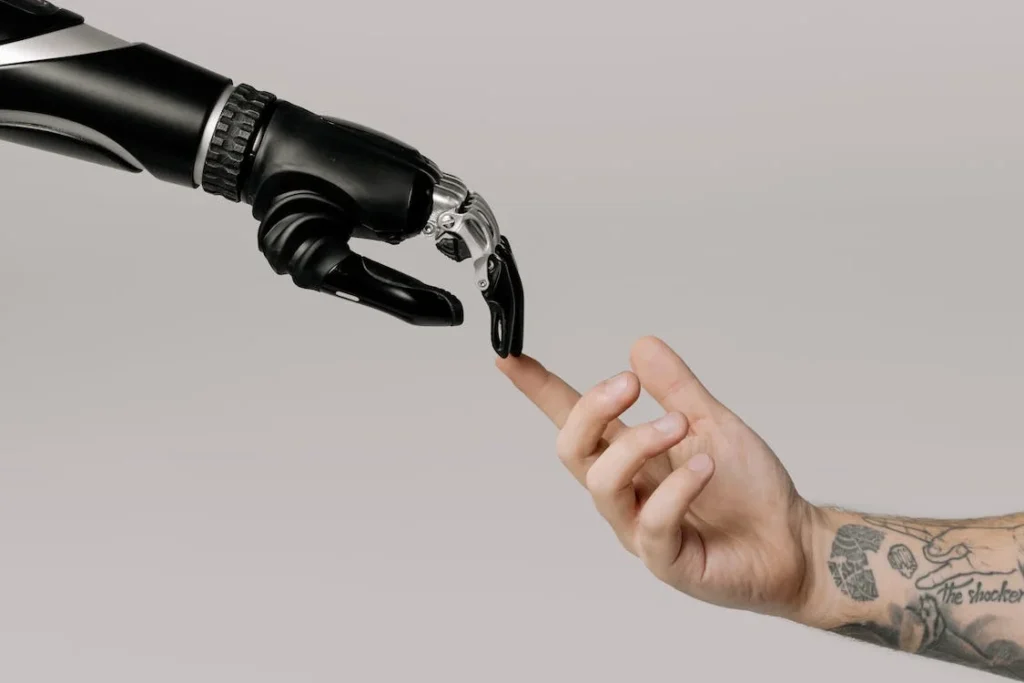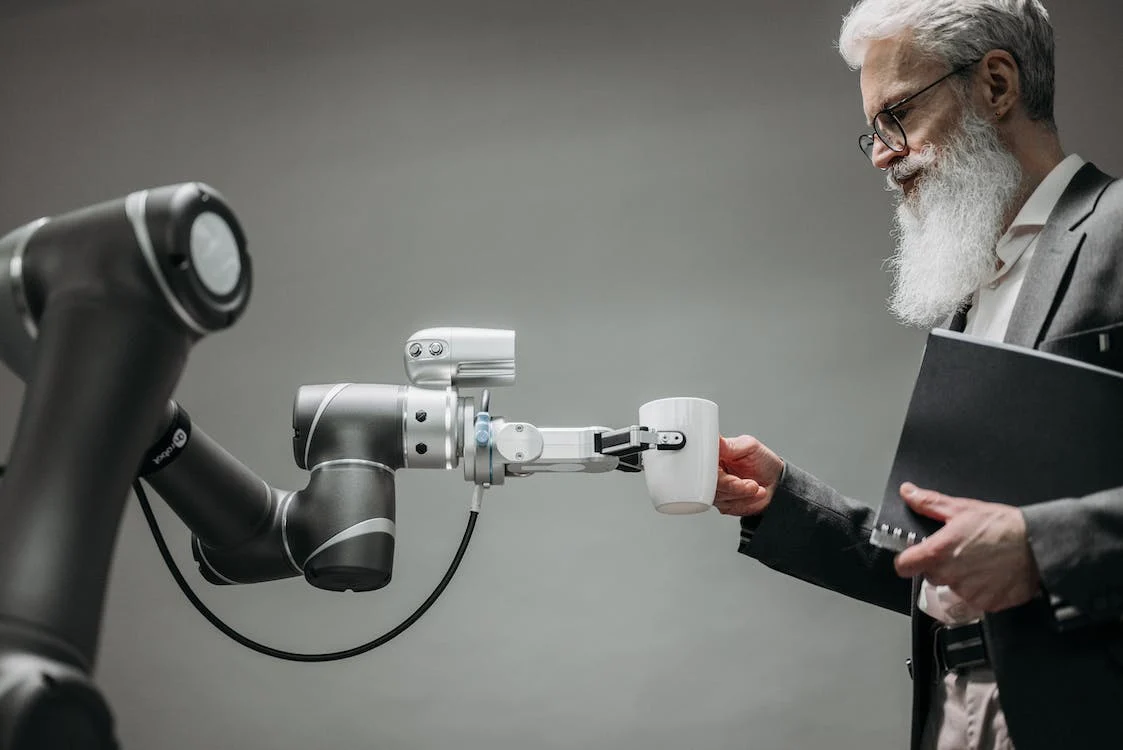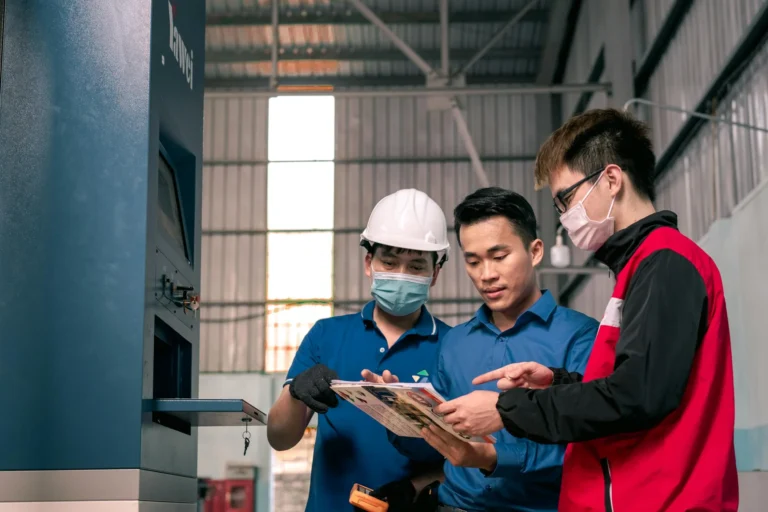The digital revolution has swept across every sector, and the construction industry is no exception. The advent of artificial intelligence (AI) and machine learning (ML) has opened new dimensions, leading to a rapid transformation in construction management and operational efficiency. These advancements have started to enhance the way we plan, design, and build structures, revolutionising the construction processes predictability, speed, and effectiveness.

The Emergence of AI and ML in Construction
The integration of AI and ML in the construction industry is an emergent phenomenon. Recognizing the value of predictive analytics, the industry has begun to adopt these technologies to improve its many facets. AI algorithms, capable of learning from the vast amount of data collected, can offer solutions that were previously unimaginable.
AI tools enable project managers to track real-time progress and improve decision-making, while machine learning algorithms provide insights that aid in risk identification, cost projection, and schedule optimization. Additionally, these technologies enhance safety on construction sites, assist in quality control, and streamline supply chain management.
Current Applications in Construction
1. Predictive Analytics
AI and ML algorithms excel in pattern recognition and making predictions based on data trends. In construction, this means AI can predict project delays, equipment failures, and even safety incidents before they occur. By using historical data and ongoing data feeds, AI systems can warn managers about potential issues, allowing them to proactively mitigate risks.
2. Intelligent Automation
Construction sites are becoming increasingly automated with the help of AI. Autonomous construction equipment like self-driving bulldozers and excavators have been introduced, performing tasks with minimal human intervention. Drones, equipped with AI, are being used for surveying sites, inspecting structures, and tracking project progress.
3. Building Information Modelling (BIM)
AI enhances the capabilities of Building Information Modelling (BIM), a process involving the generation and management of digital representations of physical and functional characteristics of places. AI can process the BIM data quickly and offer real-time insights, making the design and construction process more efficient and error-free.
4. Quality Control
Machine learning algorithms can analyse thousands of images from construction sites, identifying if the construction work is following the design plans accurately. This helps in maintaining quality standards, as ML can detect anomalies and deviations faster and more accurately than human inspectors.
Future Possibilities
The future possibilities of AI and ML in the construction industry are vast, as they promise to push the boundaries even further.
1. Advanced Construction Robots
Although we already have some autonomous equipment, we can expect construction robots to become more common in the future. These robots could perform a variety of tasks, from bricklaying to installing drywall, with speed and precision that surpass human capabilities.
2. Digital Twins
The use of digital twins – virtual replicas of physical systems – can be greatly enhanced with AI. By feeding real-time data into the digital twin, AI could allow us to simulate and analyse potential changes or disruptions in the construction process before implementing them in the physical world.
3. Smart Cities
As we look beyond the construction site, AI and ML also have the potential to help us create smarter and more efficient cities. Through AI-powered data analysis, we could optimise everything from traffic flow to energy use, and machine learning could help us design buildings and infrastructure that adapt to changing conditions over time.
4. Augmented Reality (AR)
While AR is currently being used for visualisation and training purposes, AI could take this technology to the next level. AI-powered AR could provide real-time guidance to construction workers, showing them exactly how to perform complex tasks and alerting them to potential hazards.
While the transformation is still in progress, the impact of AI and ML on the construction industry is evident. The capabilities of these technologies are vast, and we are just starting to scratch the surface. With continual advancements, we can expect an even greater shift in how the industry operates, paving the way towards more efficient, safe, and sustainable construction processes.
5. Material Optimization and Waste Management
In a sector where material waste can significantly influence the project’s cost and environmental footprint, AI could be utilised to predict and optimise material usage more accurately. By doing so, the construction industry could reduce waste, thus promoting sustainability.
6. Enhanced Collaboration and Decision Making
Effective collaboration is crucial in construction projects. AI could assist by providing tools that enhance decision-making through data-driven insights. As an example, consider a tool that uses AI to process the information from multiple parties (contractors, engineers, architects, etc.) and offer the best course of action based on these inputs.
7. Worker Productivity and Safety
On-site safety and productivity of workers are pivotal for any construction project. AI-enabled wearable technologies can monitor workers’ health and safety in real-time, providing alerts for hazardous conditions, or if a worker is in distress.
Moreover, AI can assist in training workers more effectively. Using virtual reality (VR) technology combined with AI, companies can create real-world simulations for training purposes, significantly improving the learning curve and readiness of new workers.
8. Predictive Maintenance of Machinery
Machine downtime can have significant impacts on the project timeline and, consequently, the cost. AI can be utilised to predict machinery breakdowns before they happen, based on historical data and real-time machine condition monitoring. This ability can save considerable time and money by scheduling maintenance when necessary, thereby avoiding sudden equipment breakdown.

9. Advanced Scheduling and Project Management
AI and ML can enhance project management in construction. Predictive algorithms can forecast possible delays due to various factors like weather conditions, supply chain issues, or workforce unavailability. Advanced scheduling powered by AI can also help in efficiently allocating resources, ensuring the optimum utilisation of machinery and workforce.
AI’s role in construction is progressively expanding, and the incorporation of these technologies is proving to be a game-changer. As we continue to witness advancements, one thing is clear – AI and ML are not just future trends; they are shaping the current landscape of the construction industry and hold immense potential to redefine it. This evolution is not without its challenges, though. As the industry continues to adapt and evolve, questions regarding data privacy, job displacement, and the cost of implementing such technologies will need to be addressed.
The construction industry’s journey into the digital age is just beginning, and the road ahead is teeming with possibilities. As AI and ML become more ingrained into the construction industry, the landscape will continue to evolve, potentially creating an environment of increased efficiency, reduced costs, improved safety, and enhanced sustainability.
Embracing AI and ML in construction is not just about staying current with technology; it’s about setting the industry up for a future where intelligent machines and humans work synergistically, leading to remarkable innovations and advancements in the built environment. With such promising potential, the future indeed looks exciting for the construction industry in the realm of AI and ML.
10. Asset Management and Life-Cycle Assessment
The lifetime of a construction project extends far beyond the building phase. It includes the operation, maintenance, renovation, and finally, demolition. AI can play a significant role in optimising these processes. Intelligent algorithms can predict when a part of the infrastructure needs maintenance or replacement, optimising the entire asset management process.
Moreover, AI and ML can assist in assessing the life-cycle of the built environment, providing insights on the building’s overall sustainability. These insights can further guide the design and construction of future projects, encouraging the industry towards more sustainable practices.
11. Climate Adaptation
As the effects of climate change become more evident, it’s crucial for the construction industry to adapt. AI and ML can provide valuable insights into how infrastructure can be designed and built to withstand extreme weather conditions and other environmental changes. This could involve analysing data about historical weather patterns, current conditions, and future projections to determine the best materials and designs for a particular location.
12. Regulatory Compliance
AI can significantly streamline the process of ensuring compliance with local regulations and standards. By automating the review of project designs and plans, AI can quickly identify potential compliance issues. This not only speeds up the process but also reduces the risk of human error.
As AI and ML continue to evolve, they will also become more effective at understanding and interpreting complex regulatory documents. This could potentially revolutionise the way the construction industry manages regulatory compliance, making it easier and more efficient than ever before.
13. Resolving Disputes
Construction projects often involve numerous parties, and disputes can frequently arise. AI has the potential to assist in this area as well. Machine learning algorithms can be trained to analyse contracts and other documents, identifying potential areas of conflict before they become issues. This proactive approach can save time and money by reducing the need for legal action.
14. Boosting Resilience
Resilience is key in construction, considering the natural disasters, economic fluctuations, and changes in demand the industry faces. AI can help predict these adversities and suggest mitigation strategies. This could mean a better allocation of resources during an economic downturn or making designs more robust in disaster-prone areas.
The transformative impact of AI and ML is already visible in the construction industry, and its influence will undoubtedly grow. These technologies promise a future of increased productivity, improved safety, reduced costs, and more resilient infrastructure.
The fusion of AI and ML with the construction sector represents a powerful alliance that offers a fascinating new approach towards redefining our built environment. It’s a fascinating journey to witness, and as we move forward, the exploration of these technologies will continue to create a dynamic, innovative, and effective construction industry.
The integration of artificial intelligence and machine learning in the construction industry holds transformative potential. The ability of these technologies to enhance predictive analysis, automate machinery, foster a safer work environment, and improve overall project management is opening new frontiers in the sector. While AI and ML may still be evolving within the industry, their impact is undeniable, and they promise a future of increased efficiency, safety, and sustainability in construction.
As you navigate the changing landscape of construction, WunderBuild offers a robust construction management software to meet your evolving needs. From project estimation and job scheduling to real-time communication and financial integrations, WunderBuild provides a comprehensive platform to streamline your construction processes. It is designed to foster effective collaboration within your team and with clients and subcontractors, ensuring everyone stays connected, informed, and coordinated. As we step into the future of construction, trust WunderBuild to support your journey towards greater efficiency and success.
Find out more about Wunderbuild here: Learn more




